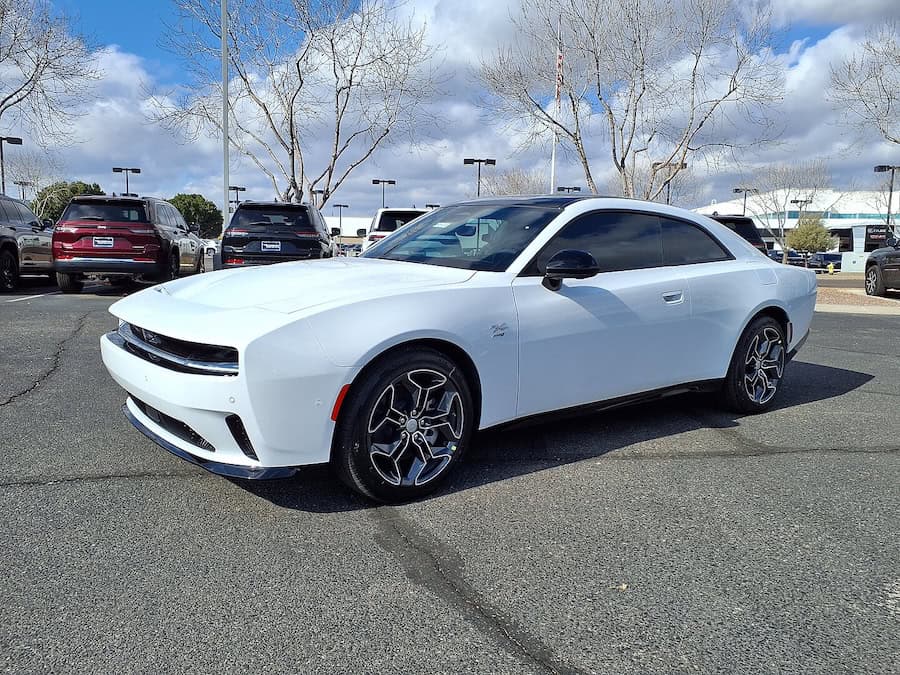Recent reports from Dodge and Jeep owners have revealed an unexpected and potentially concerning feature in their vehicles: unsolicited pop-up advertisements appearing on their infotainment screens. These advertisements, which primarily promote extended warranty services, have sparked widespread frustration among vehicle owners and may potentially violate California consumer protection laws.
The In-Vehicle Pop-up Ads at Issue
According to recent news reports and social media posts, owners of Stellantis vehicles—particularly Dodge Chargers, Challengers, and Jeep models—have been experiencing intrusive pop-up advertisements that take over their entire infotainment screens. These advertisements typically appear when the vehicle comes to a stop, such as at traffic lights or stop signs.
The advertisements predominantly promote Mopar extended warranty plans with taglines like “Purchase Peace of Mind,” though some users have reported seeing ads for local businesses and other services as well. Most concerning to many drivers is that these ads require manual dismissal, with users reporting they must click an “X” in the corner of the screen to remove the advertisement before regaining access to their navigation systems or other infotainment features.
Growing Widespread Concerns
The issue appears to be affecting a significant number of Stellantis vehicle owners. Reports began surfacing on Reddit forums and other social media platforms, with one user stating, “I just got a 2023 dodge charger a few days ago and then yesterday this [content] started popping up every time I stopped.”
While Stellantis has reportedly claimed through media outlets that these repeated advertisements are due to a “glitch” and represent an “isolated incident,” the volume of complaints across multiple vehicle models and manufacturing years suggests a more systematic implementation.
A representative on a Jeep forum acknowledged the issue, stating: “At this time, we advise that customers click the large [X] in the corner to close out and clear stored notifications from the vehicle. It should also be noted that ads are part of your contractual agreement with Sirius XM, but we are working on the frequency.”
Safety and Usability Concerns
Many vehicle owners have expressed concerns that these pop-up advertisements create potential safety hazards. When the advertisements appear, they completely obscure the infotainment screen, potentially blocking access to navigation services, backup cameras, or other safety features that drivers rely on.
The fact that these advertisements require manual dismissal means that drivers must divert their attention from the road to interact with the touchscreen. This requirement for driver interaction has raised questions about compliance with distracted driving regulations and automotive safety standards.
California Consumer Protection Laws
California has some of the strongest consumer protection laws in the nation, several of which may be relevant to this situation:
- The California Consumer Privacy Act (CCPA) provides consumers with the right to know what personal information is being collected about them and how it is being used, including for advertising purposes.
- California’s Unfair Competition Law prohibits “unfair,” “unlawful,” or “fraudulent” business practices, which could potentially include implementing intrusive advertising systems in vehicles without clear disclosure or consumer consent.
- The Automobile Sales Finance Act regulates agreements for the sale of motor vehicles and could apply if these advertising features were not properly disclosed at the time of purchase.
- California’s warranty laws require clear disclosure of warranty terms and conditions, which may be relevant if these advertisements are promoting extended warranties without proper context or disclosure.
Potential Legal Recourse
California vehicle owners experiencing these unwanted advertisements may have legal recourse, particularly if:
- The advertising feature was not clearly disclosed at the time of purchase
- The advertisements interfere with the safe operation of the vehicle
- The advertising system was implemented without proper consumer consent
- The advertisements misrepresent warranty information or other services
Some users have reported success in having the advertisements disabled by contacting customer service, with Jeep owners specifically mentioning success through the “Jeep Wave” customer service program. However, this solution appears to be inconsistently applied and may not address the underlying consumer protection concerns.
Stellantis Searches for Additional Revenue Streams
This issue arises during a period of significant transition for Stellantis. The company reported a 43 percent decline in Dodge sales during the third quarter of 2024, and in 2021, it announced plans to collect $20.8 billion annually from software-enabled vehicles through regular over-the-air updates.
While Stellantis did not explicitly state that in-car advertising would be part of this revenue generation strategy, the current implementation of these advertisements has raised questions about the future of in-vehicle advertising and the boundaries of consumer consent in increasingly connected vehicles.
Taking Action
If you own a Stellantis vehicle in California and have experienced these unwanted pop-up advertisements, you may want to consider:
- Documenting the advertisements with photos or videos when they appear
- Keeping records of when and how frequently these advertisements interrupt your driving experience
- Reviewing your purchase agreement and warranty documentation for any mentions of in-vehicle advertising
- Contacting a California consumer protection attorney to discuss your specific situation and potential legal options
The intersection of automotive technology, advertising, and consumer protection law is complex and rapidly evolving. An experienced California consumer attorney can help determine whether your rights as a consumer have been violated and what remedies may be available to you.



